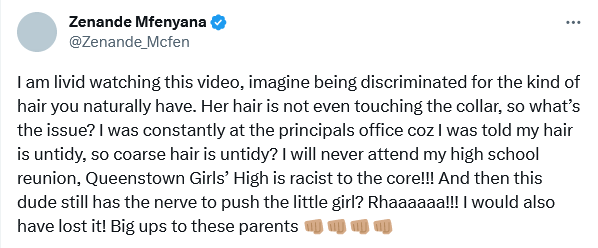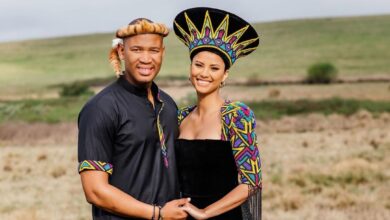“I Was Constantly At the Principals Office,” Zenande Mfenyana On Her Hair Being Labeled Untidy

“I Was Constantly At the Principals Office,” Zenande Mfenyana On Her Hair Being Labeled Untidy. The hair conversation in this country is a very deep one. This is because there are different races, what is considered natural for a certain race, is completely different from the other. In many cases blacks straighten their hair, or wear certain hairstyles, just to fit in the environment they are in.
Currently on social media, is a video that went viral on social media on Monday showing a confrontation between the mother of a 13-year-old girl and the Crowthorne Christian Academy in Midrand. Apparently the kid was not allowed to attend classes because she was spotting dreadlocks. A little while later, a man is seen forcing the parent and student out of the room with aggression.
The video caused an outrage on Twitter, with many people calling out the school. The EFF members then paid a visit to Crowthorne Christian Academy which was also found to be allegedly operation illegally. The school has closed operation, as the issue escalates.
One person who joined in on the conversation is Zenande Mfenyana. The talented actress relates to the incident, because she also was harassed over her hair as a student. The video has upset her, and she feels the parents were well in the rights to be angry.
“I am livid watching this video, imagine being discriminated for the kind of hair you naturally have. Her hair is not even touching the collar, so what’s the issue? I was constantly at the principals office coz I was told my hair is untidy, so coarse hair is untidy? I will never attend my high school reunion, Queenstown Girls’ High is racist to the core!!! And then this dude still has the nerve to push the little girl? Rhaaaaaa!!! I would also have lost it! Big ups to these parents,” Zenande shared her story.





